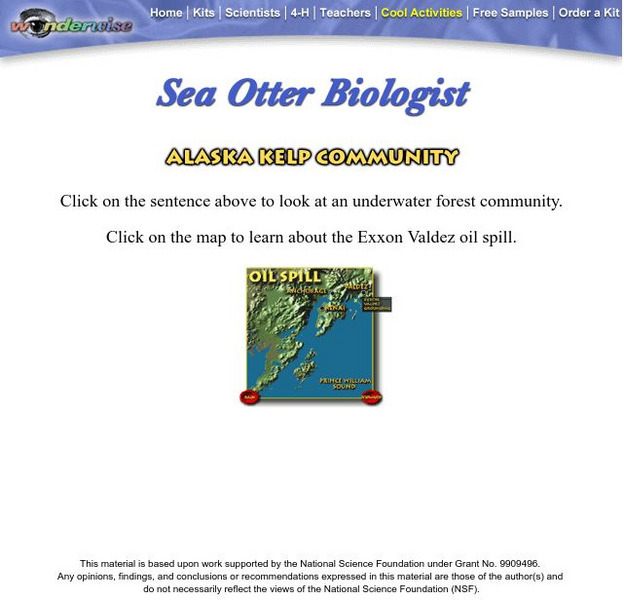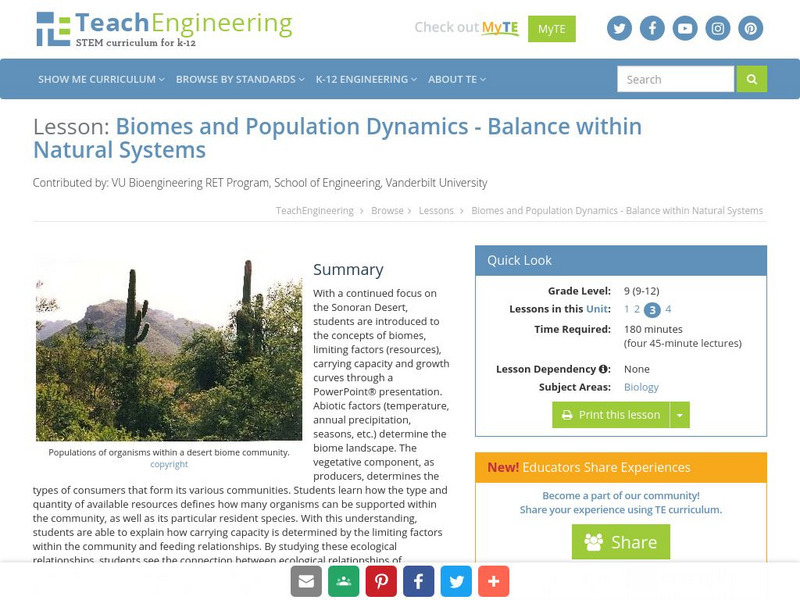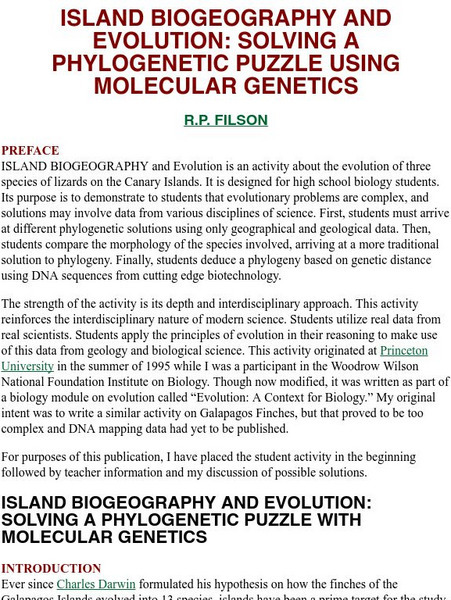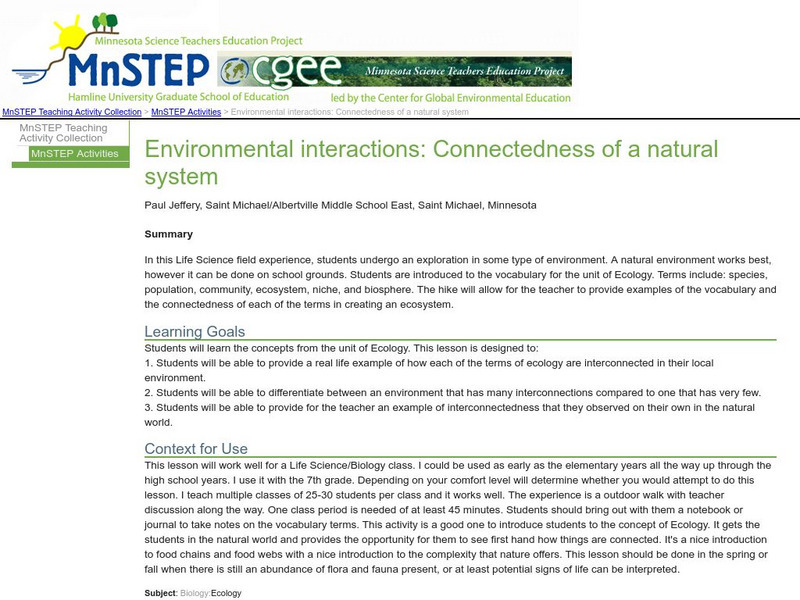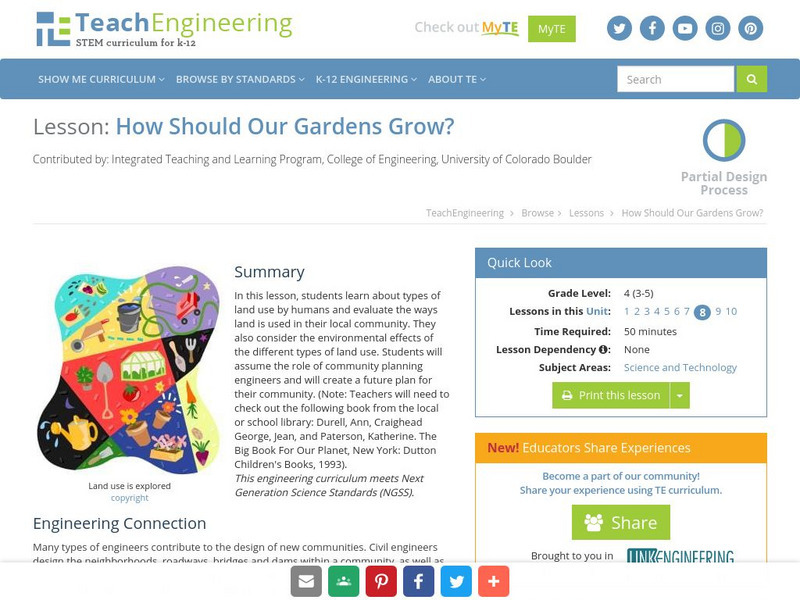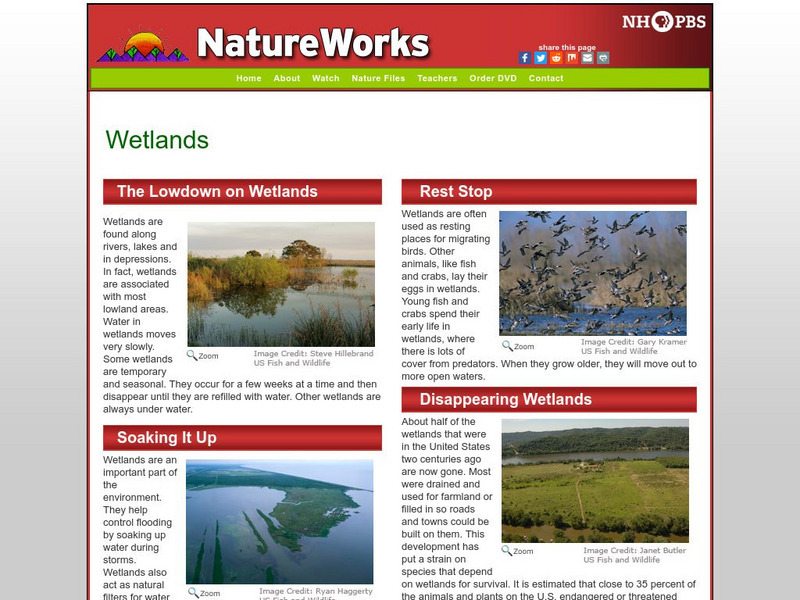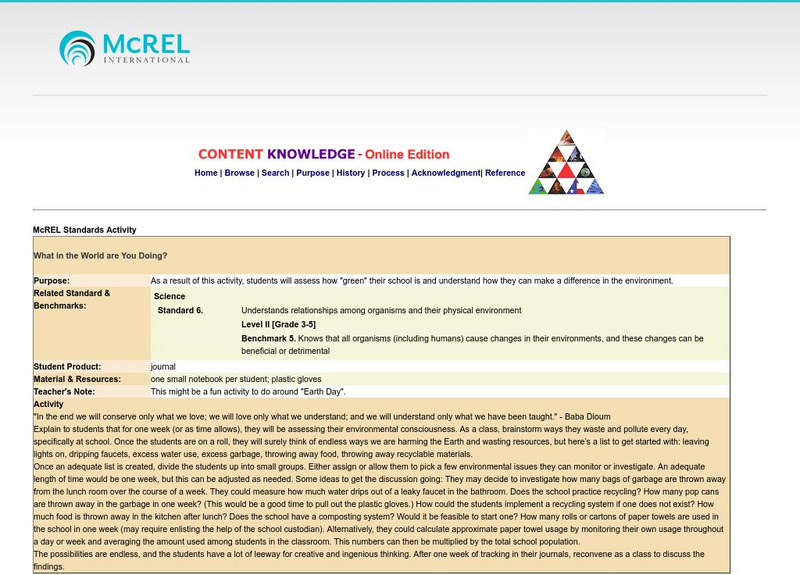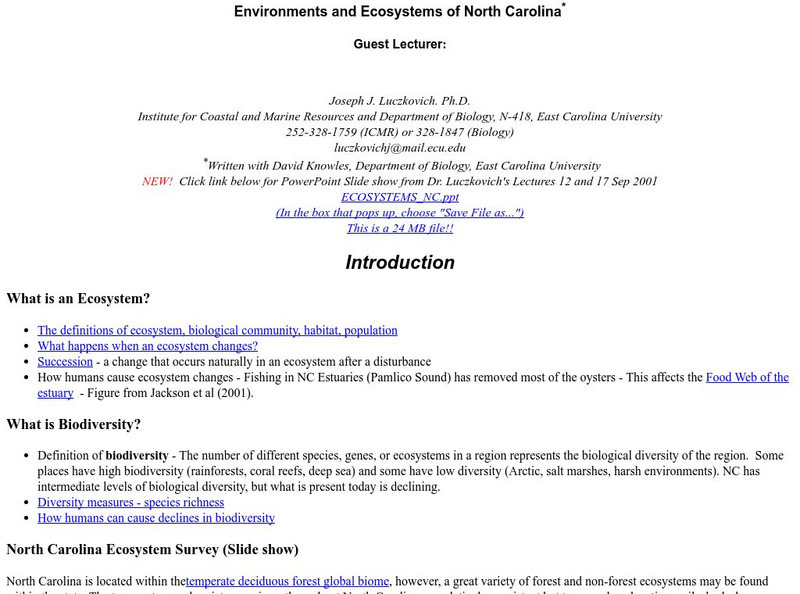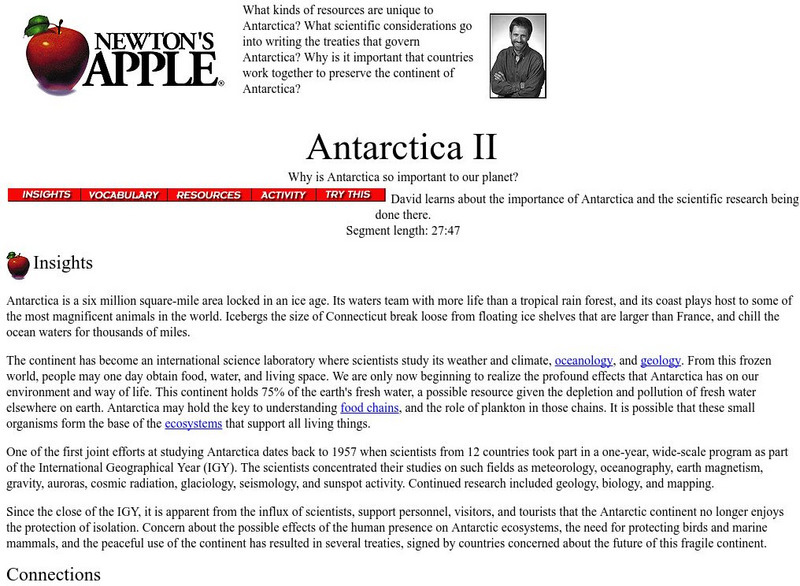University of Nebraska
University of Nebraska State Museum: Alaska Kelp Community
Discover the ecological relationships of six different organisms living in the Alaskan kelp community. The site also contains an interactive map showing the time line for the spread of the Exxon Valdez oil spill.
Science Education Resource Center at Carleton College
Serc: Investigation a Food Web: Producers, Consumers, and Decomposers
Being field scientists, students will explore a wooded area in their community and journal about their observations. Students will collect information about producers, consumers, and decomposers in the ecosystem. They will then construct...
TeachEngineering
Teach Engineering: Biomes and Population Dynamics
This lesson begins with a PowerPoint slideshow that covers important ecological concepts about biomes, limiting factors, carrying capacity, and population growth. Students will look at the population dynamics involved with the diversity...
University of California
Ucmp: Island Biogeography and Evolution
This is a lesson designed by a biology teacher. In it, students use maps and evidence of island age, molecular genetics, morphology, and distance apart to determine how the islands came to be occupied by different species of lizards. It...
Science Education Resource Center at Carleton College
Serc: Environmental Interactions: Connectedness of a Natural System
A field experience where students undergo an exploration in a natural environment. They are introduced to the concepts of species, population, community, ecosystem, niche, and biosphere.
Other
My Science Box: Ecosystem Organization
In this lesson plan, students will learn about the different levels in the hierarchy of ecology and explain the relationships: organism, population, community, ecosystem, biome, and biosphere. They will also discover why different...
Kenyon College
Hypertext Academic Projects: Large Dams in the Western United States
What is good, bad, and next for large dams in the United States? Examine biological and ecological, sociological and cultural, legal and political, and economic effects of building a dam.
TeachEngineering
Teach Engineering: How Should Our Gardens Grow?
In this instructional activity, students will learn about types of land use by humans and evaluate the ways land is used in their local community. They will also consider the environmental effects of the different types of land use....
CK-12 Foundation
Ck 12: Biology: Succession
[Free Registration/Login may be required to access all resource tools.] Overview of primary succession, secondary succession, and climax community.
Next.cc
Next: Biomes
Multiple activities help students gain a better understanding of land and water biomes.
Sophia Learning
Sophia: Food Webs: Lesson 1
This lesson will explain how to create a food web to show transfer of energy within a community. It is 1 of 4 in the series titled "Food Webs."
Sea World Parks & Entertainment
Sea World: Biodiversity
Depicts biodiversity with a brief narrative. Includes vocabulary, bibliography, and one activity. Subject matter at an upper intermediate grade level or higher.
Other
Union of Concerned Scientists: The Great Green Web Game
An interactive game tests knowledge of how choices affect the environment. Become more environmentally aware of how shopping behavior impacts the environment.
Other
The Evidence for Evolution: Biogeography
These pages are part of a site called "Evolution," that accompanies a textbook by the same name. Mark Ridley is the author. These pages are about the house sparrow and the differences that can be observed in it in different geographical...
PBS
Nh Pbs: Nature Works: Wetlands
Did you know that wetlands are frequently used as resting stops for migrating birds? This is just one of the many interesting facts found within this educational resource. This site features information on the characteristics, types,...
CK-12 Foundation
Ck 12: Life Science: Succession
[Free Registration/Login may be required to access all resource tools.] Ecosystems are "dynamic." This means that ecosystems change over time. Both natural forces and human actions cause ecosystems to change. Learn more about succession...
ClassFlow
Class Flow: Populations & Communities
[Free Registration/Login Required] This flipchart features the levels of ecological organization. Students can move objects to reveal decryptions and answers! An Activote quiz accompanies this flipchart, but may have to be downloaded and...
McREL International
Mc Rel: What in the World Are You Doing?
For this activity, students decide on environmental concerns they have about their school environment, and work in groups to investigate an issue then report back to the class. The purpose is to raise awareness about how their school...
Other
Environments and Ecosystems of North Carolina
North Carolina is located within the temperate deciduous forest global biome, however, a great variety of forest and non-forest ecosystems may be found within the state. The temperature and moisture regimes throughout North Carolina are...
Michigan Reach Out
Michigan Reach Out: Antarctica Ii
This site provides basic reasons for Antarctica's importance to our planet. Students can create their own treaty of governance for Antarctica.


